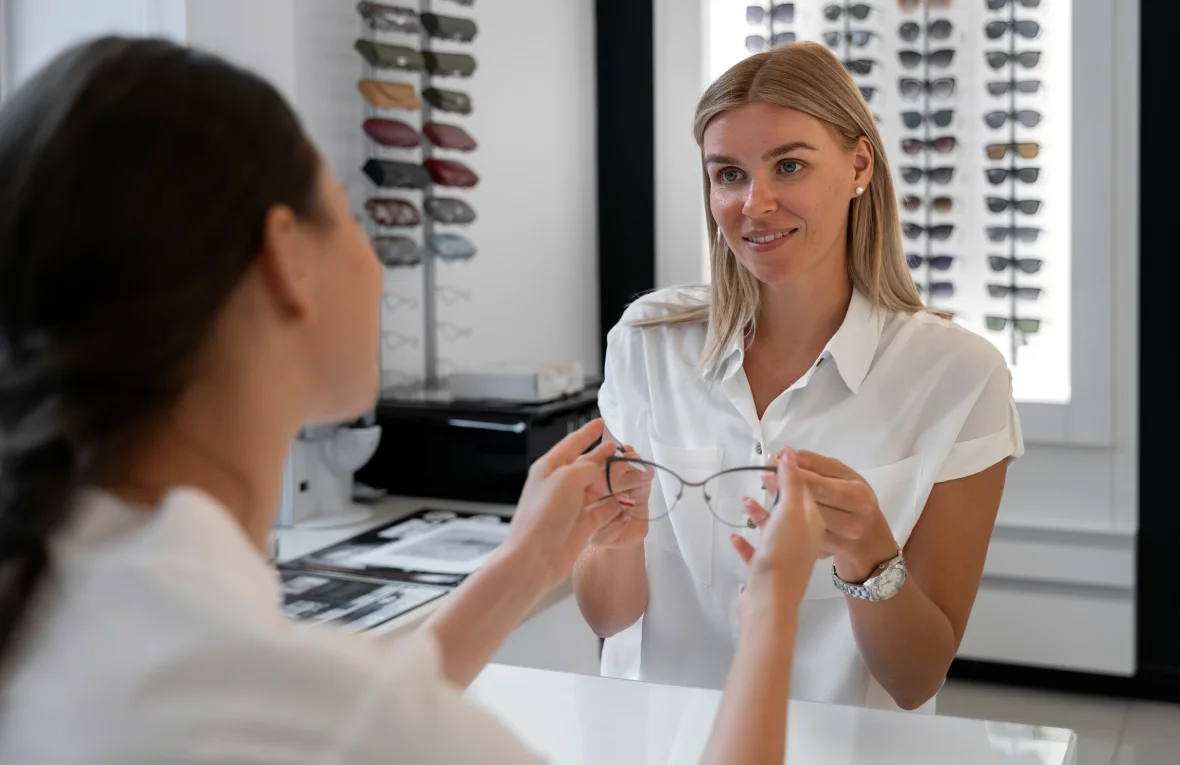What Is SMILE Eye Surgery?
SMILE (Small Incision Lenticule Extraction) is a revolutionary laser vision correction procedure. It’s minimally invasive and designed for patients with nearsightedness or astigmatism. Using a precise laser, a tiny piece of tissue within the cornea is removed through a small incision, reshaping your eye for clear, sharp vision. This advanced technique reduces recovery time and offers outstanding results.
Benefits of SMILE Eye Surgery
SMILE eye surgery is transforming the way patients experience vision correction. Here’s how it can benefit you:
- Minimally Invasive: With a smaller incision, the procedure is less disruptive to your eye’s natural structure.
- Quick Recovery: Most patients resume normal activities within a day or two.
- Lasting Results: Enjoy long-term vision correction that frees you from glasses or contacts.
- Comfortable Procedure: Designed to be gentle and efficient, SMILE minimizes discomfort.
- Active Lifestyle Ready: Ideal for athletes, swimmers, and anyone seeking freedom from eyewear.
Why Choose Anchorage Eye Clinic?
Anchorage Eye Clinic combines advanced technology with compassionate care to deliver exceptional outcomes. Our experienced surgeons specialize in SMILE and ensure every step of the process is tailored to your needs. You can trust us to help you achieve your vision goals with confidence.
Start Your Journey to Visual Freedom Today!
Take the first step toward clearer vision by scheduling your FREE consultation at Anchorage Eye Clinic. Our SMILE specialists will evaluate your eyes and provide personalized recommendations to improve your eyesight.
Fill out our Schedule A Visit form now, and let us help you enjoy life without the limitations of glasses or contacts.
Your vision deserves the best care. Anchorage Eye Clinic is your partner in achieving visual freedom—let’s make it happen. Complete the form today!
Frequently Asked Questions
How often should I have an eye exam?
It’s recommended that adults have a comprehensive eye exam every 1-2 years, even if your vision seems fine. For children, their first eye exam should be at 6 months, followed by another at 3 years old, and then annually during school years. If you wear glasses or contact lenses or have a medical condition like diabetes, you may need more frequent exams.
What are the signs that I need glasses?
If you’re experiencing frequent headaches, eye strain, blurry vision (either up close or at a distance), difficulty seeing at night, or squinting to focus, these could be signs that you need glasses. A comprehensive eye exam will determine if corrective lenses are necessary.
What causes dry eyes, and how can I treat it?
Dry eyes can be caused by aging, certain medications, environmental factors, or prolonged screen use. Treatment options include artificial tears, prescription eye drops, and lifestyle adjustments such as taking breaks from screens. An eye doctor can recommend the best course of treatment based on the severity of your symptoms.
Are there ways to prevent common eye diseases like glaucoma or cataracts?
While you can’t always prevent eye diseases, there are steps you can take to reduce your risk. These include wearing UV-blocking sunglasses, eating a healthy diet rich in antioxidants, avoiding smoking, and having regular eye exams to catch any issues early. Managing conditions like diabetes or high blood pressure can also help protect your eye health.





